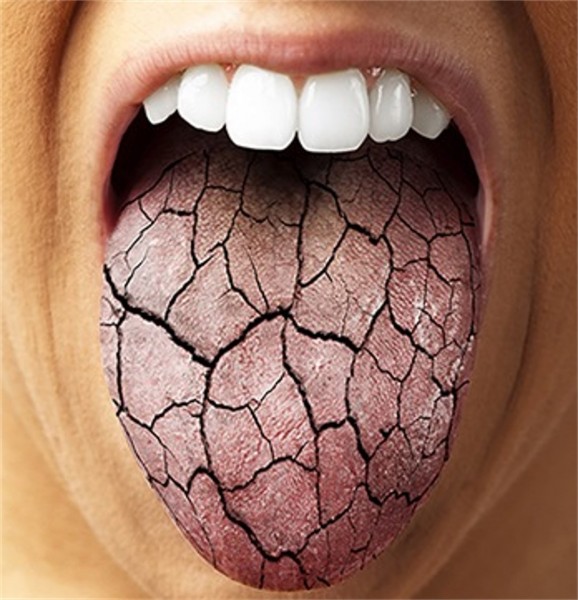Patients often come into the office complaining of dry mouth. Sometimes having a dry mouth can be so bad that it wakes patients up from their sleep and can be a constant struggle throughout the day.
Dry mouth is not only very uncomfortable; it can lead to serious health problems for you.
How do I know if I have Dry Mouth? What are the Symptoms?
- A dry, almost sticky feel in your mouth

- Cracked lips
- Trouble tasting
- Trouble speaking
- Trouble chewing and /or swallowing
- Burning feeling in the mouth and throat
- A dry feeling in the throat
- Cracked lips
- An infection in the mouth
Everyone can experience dry mouth from time to time. Dry mouth is only a problem if you have it very often or all of the time.
Dry mouth can be caused by:
- Certain diseases– the salivary glands can be affected by some diseases including diabetes, HIV/AIDS, Parkinson’s, and Sjögren’s Syndrome
- Medical treatments– different therapies such as chemotherapy and radiation therapy can decrease salivary flow
- Medications– as many as 400 different medications can affect the salivary glands and decrease saliva flow
- Damage to nerve endings– trauma to the head and neck region can affect salivary flow
It is important to see your dentist and your primary care physician to let them know that you are experiencing dry mouth so that they can help you diagnose the underlying reason why it is happening.
When the mouth is dry you will not have enough saliva to keep the mouth wet. It is very important to generate enough saliva to be able to:
- Properly digest food
- Protect teeth from cavities
- Prevent infection by controlling bacteria in the mouth and throat
- Help you chew and swallow comfortably
What Can be Done About Dry Mouth?
Depending on what is causing the problem, dry mouth is treated in different ways. Be sure to see your dentist and your primary care doctor so that they can determine what is causing the dry mouth syndrome and treat accordingly.
Treatment modalities include but are not limited to:
- Saliva Stimulate- If saliva is being produced just not up to high enough levels, your doctor or dentist might give you a medication or a rinse that will increase salivary flow
- Saliva Substitute- Your doctor or dentist might prescribe artificial saliva to help you
- Medication Adjustment- If your dry mouth is caused by medications(s), your doctor might change your medicine or adjust the dosage
What can I do at Home?
- Nighttime use of a humidifier
- Chewing sugarless gum and using sugarless candy to increase saliva flow.
- Sipping on water during meals and often during the day
- Avoiding smoking and alcohol
- Avoiding spicy and salty foods
Be sure to see your dentist and primary care physician regularly in order to help you if you are dealing with dry mouth. It is important not just for your oral health but for your overall heath as well.
Call us at 215.568.6222 to schedule a free consultation with Dr. Cirka, Dr. Jeon and Dr. Smith today!


